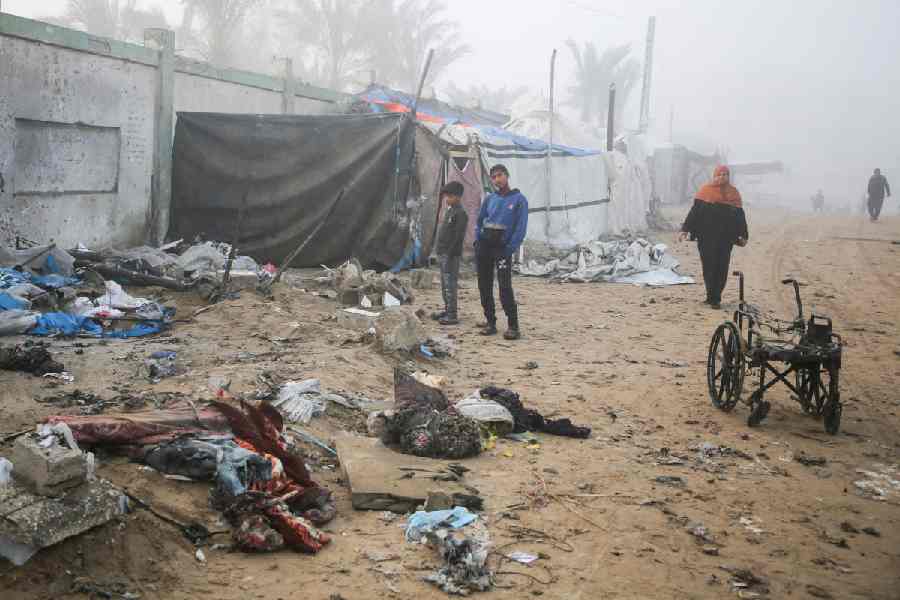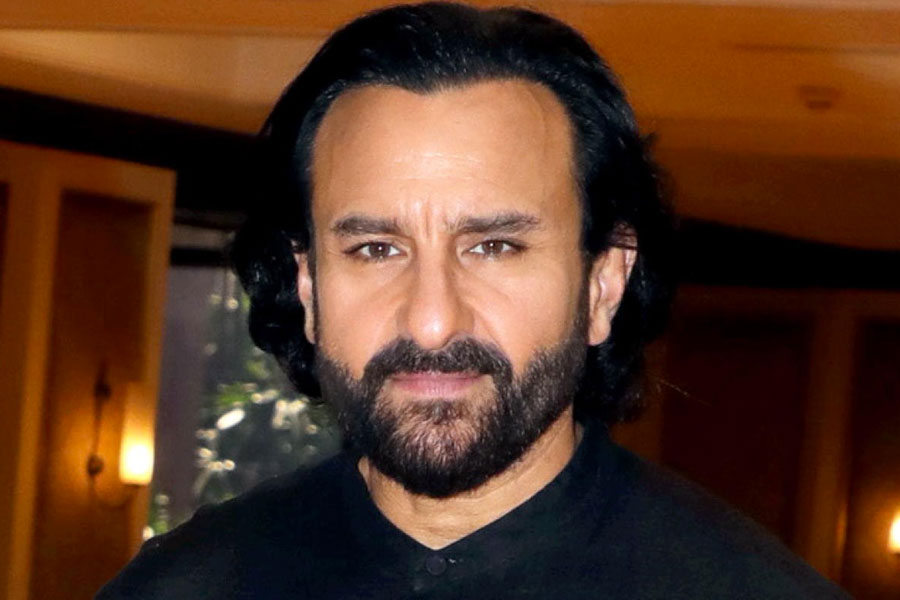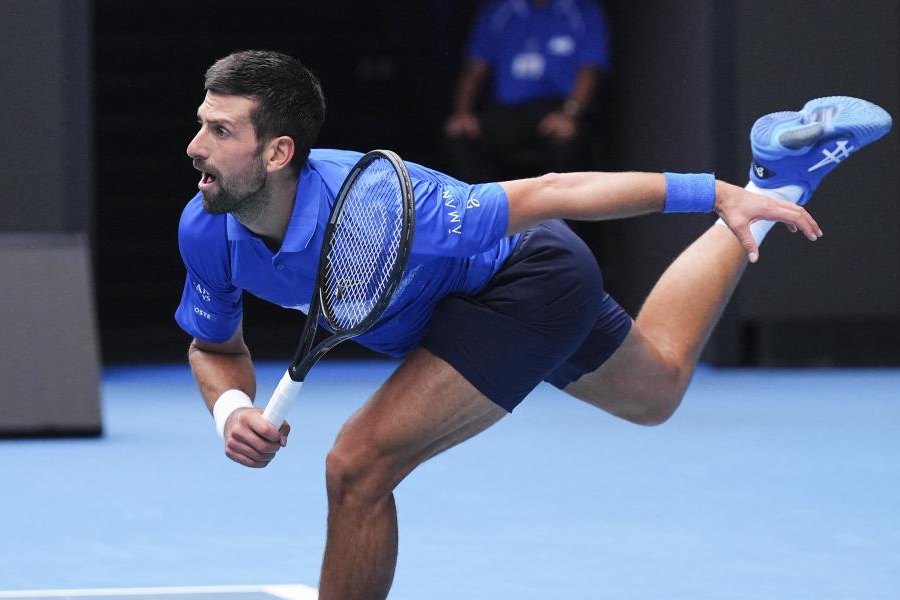The airport-bound flank of the flyover connecting EM Bypass with VIP Road was reopened on Thursday night after engineers concluded
that the crack that resulted in the closure of the flyover was not as dangerous as it appeared.
Police said vehicles were back on the airport-bound flank around 10pm.
“We have decided to throw open the airport-bound flank. The Bypass-bound flank will remain closed for some time till remedial measures are taken,” an official in the urban development department said earlier in the day.
The decision to reopen the airport-bound flank was taken at a meeting attended by state government officials, representatives of CMDA (custodian of the flyover), members of the state government’s bridge advisory committee and engineers of a Delhi-based agency that is studying the health of several flyovers in Calcutta.
A growing crack in the cap of pier 19 of the Bypass-bound flank had prompted the government to close the flyover around 7.50pm on Tuesday for an indefinite period.
“The crack is in a crucial position under the airport-bound flank. Since there is no issue with the other flank, there is no harm in allowing traffic on it,” an CMDA official said.
Trestles, or steel structures that go up from the road and act like additional support, will be fixed to eight spans of the flyover under both flanks, the official said.
Earlier in the day, members of the bridge advisory committee, which the urban development department had formed following the collapse of the Majerhat bridge in September last year, inspected the crack. “It seems localised. It is restricted to one place and there are no cracks in other parts of that pier,” a member of the committee said.
A member of the advisory committee and an engineer of the Delhi-based agency went up about 16ft on a crane that had an inspection platform fitted to it to examine the crack.
They took pictures of the crack and also put fingers into it to feel its depth.
“There is nothing worrying about the nature of the crack. But since it is located in a crucial position, it must be fixed before traffic is allowed on the flank,” a member of the committee said.
“We will first heal the gap created by the crack with concrete. After that we will fix a steel band around the crack to strengthen the concrete and to prevent the crack from expanding,” the member said.
The team collected two concrete chunks from the pier whose cap has cracked. “We will find out how much load the concrete can take and under what pressure it crushes. The test will help us determine whether the actual capacity of the concrete is same as the designed load capacity,” he said.
The member, who is also an engineer, said “traffic would be allowed after the crack is fixed”. The trestles can be erected while vehicles move above.
Engineers and officials of the state government said it was difficult to say when the Bypass-bound flank would be reopened. There is, however, no chance of it being reopened in another week.
The crack that necessitated the shutdown has appeared on one of the two piers holding the span above the Kestopur canal. The span is new; the one in its place had crashed in March 2013, resulting in the closure of the flyover till September 2014.











